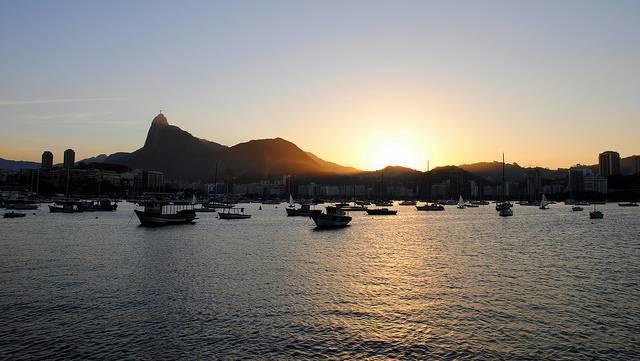
COP23 may offer some glimmers of hope that global cooperation on climate change mitigation can continue, with or without the participation of the federal United States government. But while diplomats in Bonn, Germany are trying to accelerate the implementation of the Paris Agreement, the actions in some national capitals indicate the goals are quite the opposite.
As reported this week by the Guardian, Brazil is one such country seeking to cash in on its fossil fuel reserves, even while much of the word is determined to move towards cleaner sources of energy. The administration of President Michel Temer recently submitted a bill that if passed would drastically lower taxes on the country’s vast offshore oil reserves, otherwise known as the “presalt” fields or reserves.
According to reporter Jonathan Watts, the outcome would be that Brazil would collect minimal revenues on future barrels of oil extracted, hence eliminating much of the global competition in the oil sector. Such policy would be a great short-term boost for Brazil’s treasury, but a huge step backwards for climate action, say the bill’s critics.
Brazil’s move comes at a time when national governments in Bonn insist that reducing carbon emissions is integral to building a low-carbon economy, while current nationally determined contributions (NDCs) are still not enough to avert climate change-related risks worldwide.
“The known pre-salt oil reserves are a climate time bomb,” Greenpeace’s chapter in Brazil announced in a public statement.
The environmental NGO concluded that if the 176 billion recoverable barrels under Brazil’s water were burned, they could release almost 75 billion more tons of CO2 into the atmosphere. That amount is equivalent to 7 percent of all carbon dioxide all of humanity can still emit if the world wants to achieve the Paris Agreement goal of keeping global warming below 2°C by mid-century. In addition, that amount is 18 percent of the carbon that the world could release into the atmosphere to meet the more ambitious goal of stabilizing warming at 1.5°C, a metric many scientists say is the only safe temperature limit if island nations like Fiji, the government of which is the host of COP23, will be able to survive into the 22nd century.
Angst over this legislation in Brazil comes as more data, and additional policies coming out of Brazil, indicate that Latin America’s largest economy continues to move backwards on climate policy and increasing the rate of deforestation.
As COP23 launched, data published by the Brazilian Climate Observatory revealed the country’s greenhouse-gas emissions rose 8.9 percent in 2016 from the previous year despite the nation’s worsening recession. The world’s seventh biggest climate polluter, says Greenpeace, has the distinction of being the only major economy in the world to increase pollution without growing income.
The result, says another NGO, is that Brazil’s recent actions are undoing years of diplomacy undertaken by the country’s diplomatic corps. “While the Brazilian Foreign Affairs Ministry sends its ambassadors to parade in the corridors and pose for COP 23 photos, [Brazil] prepares to vote a provisional measure that reduces the taxes to be paid by companies involved in the exploration, development and production of oil and gas,” said 350.org in a recent press release.
Image credit: Leandro Neumann Ciuffo/Flickr

Leon Kaye has written for 3p since 2010 and become executive editor in 2018. His previous work includes writing for the Guardian as well as other online and print publications. In addition, he's worked in sales executive roles within technology and financial research companies, as well as for a public relations firm, for which he consulted with one of the globe’s leading sustainability initiatives. Currently living in Central California, he’s traveled to 70-plus countries and has lived and worked in South Korea, the United Arab Emirates and Uruguay.
Leon’s an alum of Fresno State, the University of Maryland, Baltimore County and the University of Southern California's Marshall Business School. He enjoys traveling abroad as well as exploring California’s Central Coast and the Sierra Nevadas.














